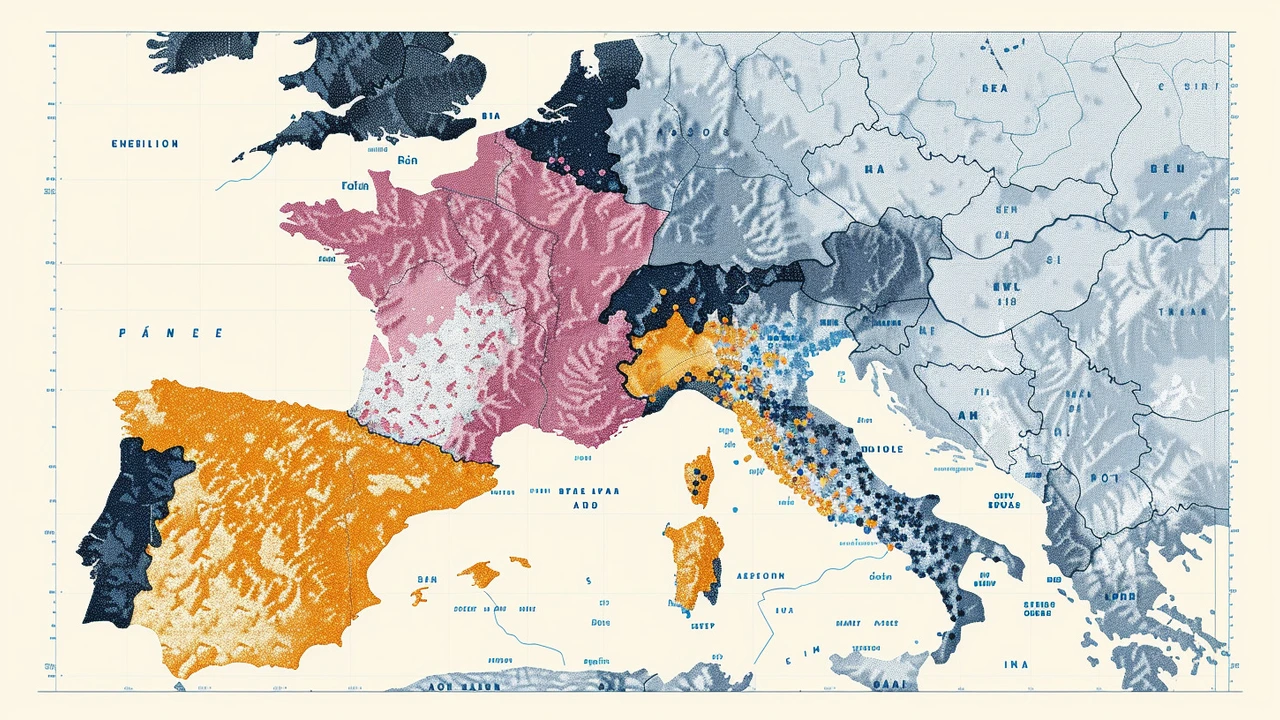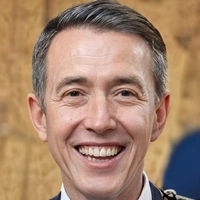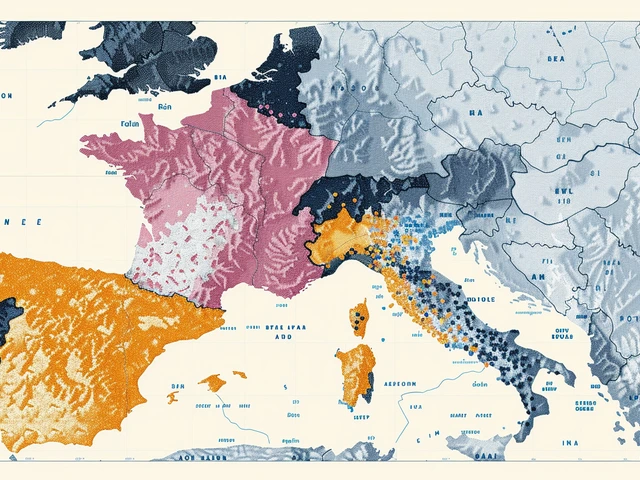France's Far-Right National Rally Party Sees Gains in Southeast but Struggles in Paris
France's Far-Right National Rally Party Sees Gains in Southeast but Struggles in Paris
The far-right National Rally (RN) party, helmed by Marine Le Pen, continues to make waves in France's ever-volatile political landscape. In the most recent round of polls held on Sunday, the RN garnered an impressive 33.15% of the votes aimed toward appointing members of the National Assembly. While this is a noteworthy victory, it came with mixed results across various regions, spotlighting the nation's deeply divided political ground. In the northern Hauts-de-France region, once a stronghold of Communist and Socialist support, the RN has experienced unprecedented success. Seventeen of their candidates secured seats during the first round, marking a historical achievement for the party in this area. Marine Le Pen herself triumphed with 58.04% of the vote in Pas-de-Calais, a region marked by its storied history of coal mining and now emblematic of the RN's increasing influence.
On the other hand, the RN faced significant setbacks in Paris, one of France's great bastions of left-wing politics. The city saw no RN candidates advance beyond the first round, illustrating the formidable resistance the party faces in urban centers. Paris, known for its progressive leanings, predominantly threw its support behind the New Popular Front, which captured nine of the 18 seats up for grabs. Emmanuel Macron's centrist allies gained significant ground as well, leading in five other constituencies. Such outcomes in Paris highlight the stark geographic divides in French politics, where urban and rural areas increasingly lean toward different ends of the political spectrum.
The RN's impact, however, was profoundly felt in the southeastern Provence Alpes Côte d'Azur region. This area, home to cities like Marseille and Nice along with glamorous resorts like Cannes and Saint-Tropez, witnessed the RN making substantial strides. In Marseille, the vote was nearly evenly split across constituencies between the RN, left-wing factions, and centrist groups. The RN emerged as the leader in half of the contested races, underscoring the growing appeal of far-right ideals in this region. A notable instance of RN's expanding footprint is observed in Nice, where an MP from the mainstream right-wing Republicans party, who controversially aligned with the RN, secured victory. The RN's performance in Nice also saw a remarkable increase, with their score rising by 24 points over the previous elections held in 2022.
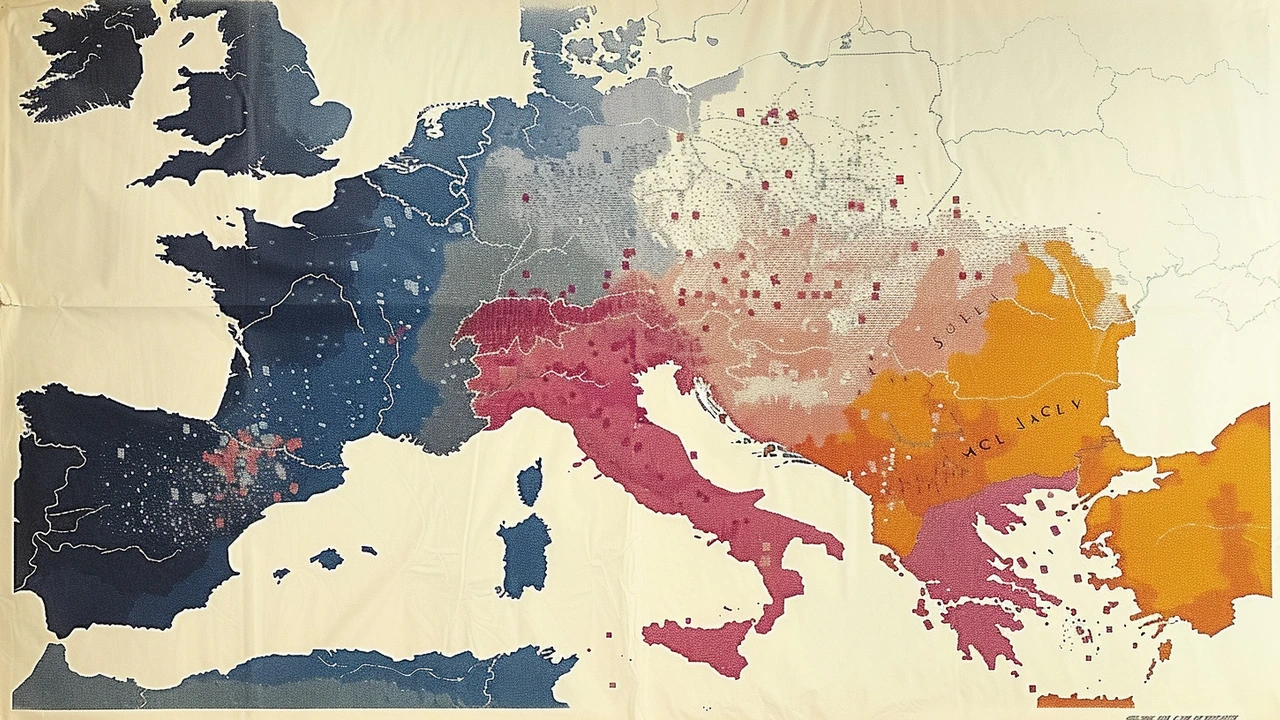
Success and Setbacks: RN's Growing Influence
Notably, the RN's rise has come at the expense of traditional left-wing and even mainstream right-wing candidates. The story of Communist Party leader Fabien Roussel losing his seat to an RN candidate is a stark example of this shift. Roussel's former constituency had been a Communist stronghold for over six decades. This loss underscores the broader narrative of the RN's inroads into regions that once stood firmly against far-right ideologies.
The results of this election paint a complex picture of contemporary French politics. The RN's gains in regions like Hauts-de-France and Provence Alpes Côte d'Azur indicate a shifting political allegiance in areas hard-hit by economic challenges. These former industrial regions, faced with the erosion of traditional industries and rising unemployment, have increasingly turned to the RN's populist and nationalist messages. The RN's success mirrors broader trends in Europe, where far-right parties have capitalized on economic discontent and fears over immigration to bolster their support base.
Paris: The Stubborn Left-Wing Stronghold
Paris remains a bastion of resistance for the RN. The city's historical commitment to progressive and leftist values continues to pose a formidable challenge for Marine Le Pen and her party. Even as the RN makes inroads in other regions, Paris's steadfast support for left-wing candidates in this election underscores the city's role as a counterbalance to the RN's growing influence. This outcome is not entirely surprising. Paris, with its diverse population and status as a global hub, often leans toward more liberal and inclusive political ideologies. The city's rejection of the RN's candidates reaffirms its position as a stronghold of progressive values in an increasingly polarized political landscape.
In essence, the RN's mixed performance in this election is indicative of the broader divides within French society. Regions struggling with economic hardship and feeling left behind by traditional political parties are increasingly turning to the RN for answers. On the other hand, urban centers like Paris, which benefit from globalization and economic stability, continue to reject the party's far-right agenda. This dichotomy highlights the complex and fragmented nature of modern French politics, where the fortunes of political parties are deeply intertwined with regional economic conditions and cultural values.
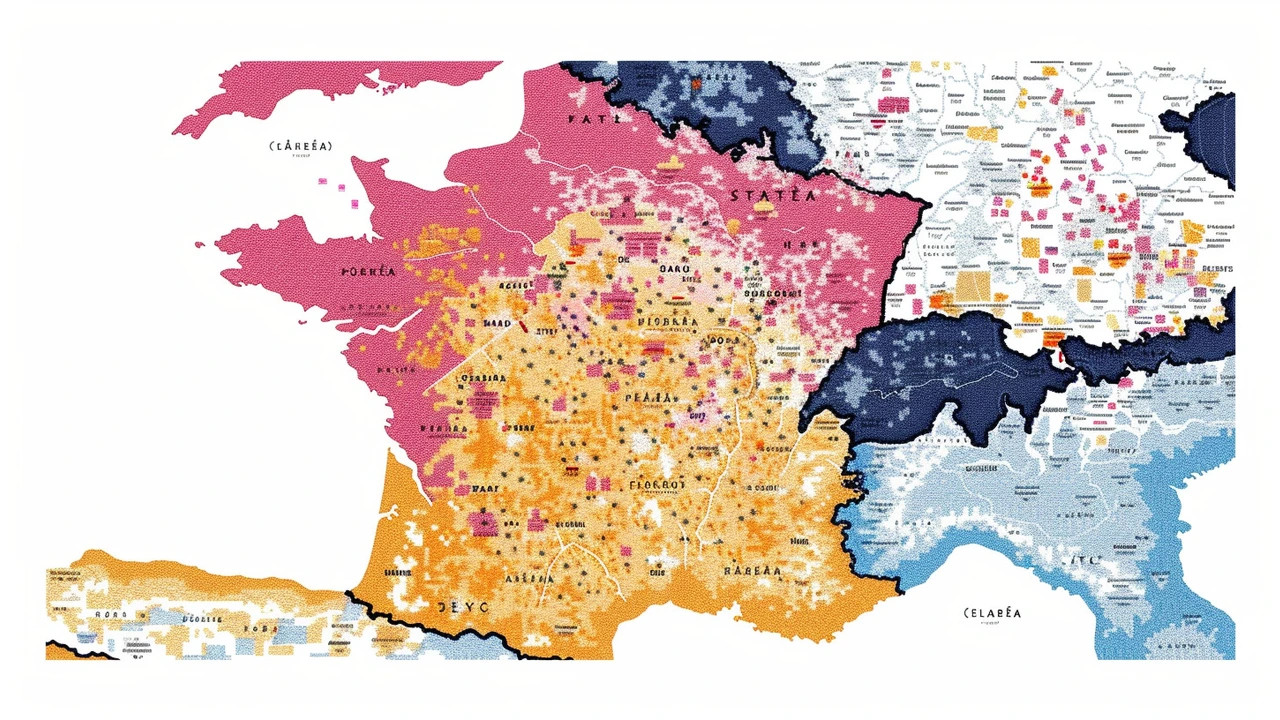
The Future of France's Political Landscape
The latest election results raise critical questions about the future trajectory of France's political landscape. Can the RN maintain its momentum in economically depressed regions and continue to expand its influence? Will traditional left-wing and centrist parties find ways to counter the RN's appeal in these areas? The answers to these questions will shape the future direction of French politics.
For now, the RN's performance in this election serves as a reminder of the persistent and evolving divisions within French society. As the country grapples with economic challenges and social unrest, the appeal of far-right ideologies continues to grow. The coming months and years will be crucial in determining whether this shift is a temporary response to current crises or a more permanent realignment of France's political landscape.
Ultimately, the rise of the RN, even amidst setbacks in key strongholds like Paris, underscores the fluid and dynamic nature of democracy in France. Political parties must continuously adapt and respond to the changing needs and concerns of the electorate. The RN's gains in this election reflect the party's ability to tap into the frustrations and aspirations of a significant portion of the French populace.
As France continues to navigate its political future, the voices of its citizens, from the urban centers of Paris to the former industrial heartlands of Hauts-de-France, will play a crucial role in shaping the direction of the nation's politics.
